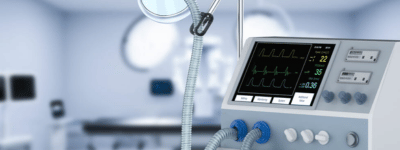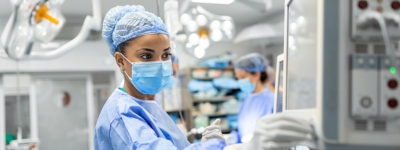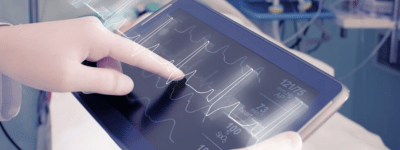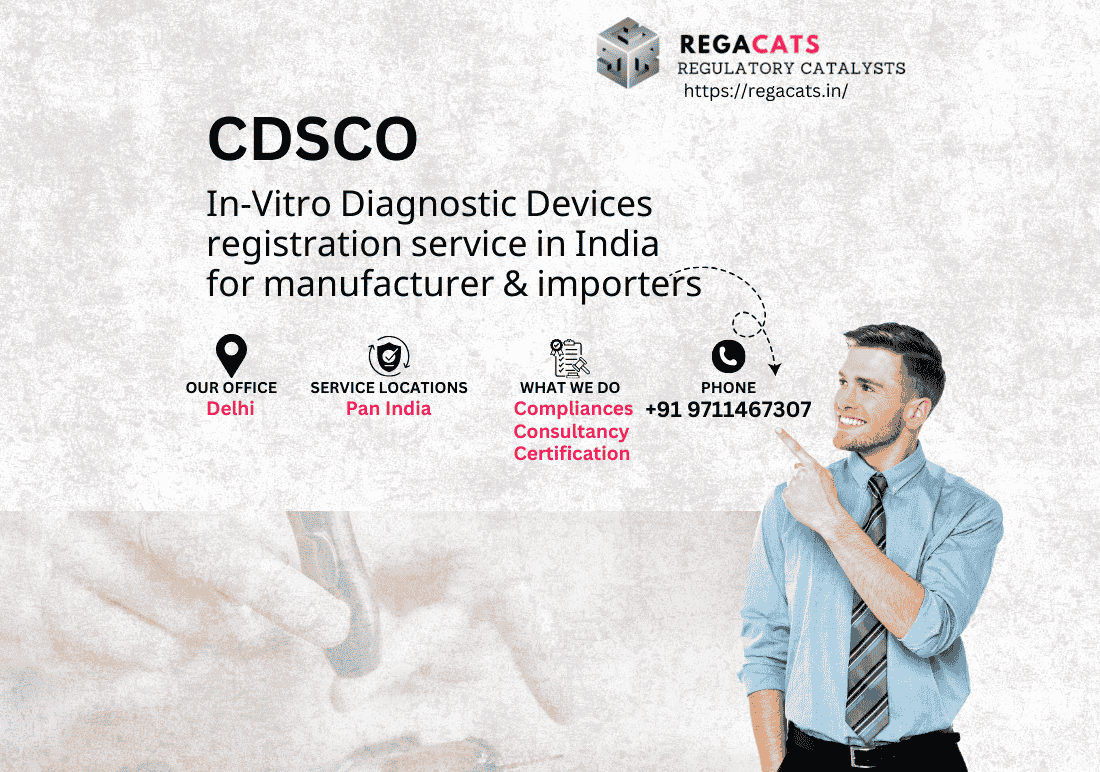What is an IVD Device?
An IVD (In Vitro Diagnostic) device is a test or tool used to analyze samples taken from the human body, like blood, urine, or tissue. These tests are done outside the body (IVD- “in vitro” means “in glass”), usually in a lab or using a simple device. They help doctors diagnose diseases, monitor a person’s health, or decide on the best treatment. Think of things like pregnancy tests, blood glucose monitors for diabetes, and testing kits for infections are some examples of In Vitro Diagnostic or IVD.
“IVD Device Approval experts” in India : The Consultancy assistance
IVD Device Approval experts in India: The consultancy assistance offered by ReaCats Solutions ensures your device meets all regulatory requirements, avoiding costly delays and market access challenges.
3 easy Key Steps for IVD Device Approval in India with RegaCats Solutions
Classification Assistance of the IVD Device
The first crucial step in bringing an IVD device to the Indian market is determining its risk classification. Under the CDSCO’s risk-based system, as detailed in the Medical Device Rules, 2017, IVDs are categorized from Class A (low risk, such as reagents and lab solutions) to Class D (highest risk, like genetic testing kits). Class B represents moderate risk devices (e.g., pregnancy tests, blood glucose strips), while Class C encompasses high-risk devices (e.g., HIV/hepatitis test kits). Accurate classification is essential, as it dictates the applicable regulatory requirements and the type of license a manufacturer will need. Manufacturers should carefully consult the CDSCO’s classification guidelines to ensure they understand the specific regulations that apply to their device.
Documentation Assistance and Performance Evaluation
Preparing comprehensive technical documentation is a critical component of the IVD device approval process in India. This typically involves submitting a Device Master File (DMF) containing detailed technical specifications, proof of ISO 13485 certification, and any relevant clinical data. If the device has already been approved in reference countries like the US, EU, or Japan, documentation of that approval should also be included. In addition to the DMF, a Plant Master File (PMF) detailing the manufacturing facilities is also required. Performance testing is another essential step, especially for higher-risk devices. Class B, C, and D IVDs require in-country performance evaluation. This testing must be conducted by laboratories accredited by the National Accreditation Board for Testing and Calibration Laboratories (NABL) or by the National Institute of Biologicals (NIB). For the highest-risk Class D IVDs, testing must be conducted through NIB. However, for Class B and C devices, existing performance data may be accepted if the device has already been approved in other major markets, potentially streamlining the process.
CDSCO Submission and Approval Assistance
The CDSCO submission and approval process begins with filing an application (Form MD-14) through the CDSCO’s SUGAM portal. This online submission must include all necessary fees and supporting documentation, such as the Device Master File (DMF), Plant Master File (PMF), and ISO certificates. A key requirement for foreign manufacturers is the appointment of an India Authorized Agent, who must possess a wholesale license and a Power of Attorney. The CDSCO’s review process often involves a technical presentation, with approximately 25% of applications requiring an in-person meeting to discuss the device’s details. New or high-risk devices may be subject to further review by a Subject Expert Committee (SEC), potentially including clinical trial requirements. Upon successful completion of the review, the CDSCO issues an Import License (Form MD-15), which is valid indefinitely, though retention fees are payable every five years. It’s important to note that Class A non-measuring and non-sterile devices are an exception, requiring only registration and not an import license.
Who needs IVD device license : Manufacturers, importers, wholesalers, and distributors of IVD devices in India
RegaCats Services are for everyone
Manufacturers, importers, wholesalers, and distributors of IVD devices in India all require the appropriate licenses to operate legally. Anyone involved in the manufacture, import, sale, or distribution of IVDs needs a license, and the specific type depends on the device’s classification (A, B, C, or D) and the activity. Navigating this licensing landscape can be complex, but ReaCats Solutions simplifies the process. We assist with determining the correct license type for your specific IVD device and business activities, prepare and submit all required documentation, and manage communication with regulatory authorities, ensuring a smooth and efficient path to compliance.
In Vitro Diagnostic Device CDSCO Process Handling Steps
RegaCats takes this under it’s 3 steps of process handling, for your ease this is what you see when you hire us!
What services RegaCats Solution provide for In Vitro Diagnostic Device Approval, registration and licensing?






We Make Sure Your Labels and Instructions are Clear
We’ll double-check that your device labels and instructions follow all the rules.
An Additional Service For Foreign Companies: We Can Help You Find a Local Representative
If your company is outside India, we’ll help you find someone here to represent you.

Delhi has a mix of public and private hospitals and labs, offering a wide range of diagnostic services. This robust infrastructure supports the use and accessibility of IVD devices, creating a substantial market for IVD products.
Delhi’s government often launches public health initiatives (e.g., disease screening programs). These initiatives can create increased demand for specific IVD devices. Staying informed about these initiatives can be beneficial for IVD businesses.
Delhi has a concentration of regulatory consultants specializing in medical devices. You can find consultants through online directories, industry referrals, or by contacting firms like RegaCats Solutions, which has expertise in navigating the Delhi and national regulatory landscape.
Distributors and wholesalers of IVD devices in Delhi need to obtain the appropriate licenses from the Delhi State Licensing Authority, in addition to any CDSCO approvals for the devices themselves. The requirements are generally aligned with the national regulations but it’s important to check with the state authority for any Delhi-specific guidelines.
Keep an eye on the CDSCO website for announcements about workshops and training programs. Industry associations like the Association of Indian Medical Device Manufacturers (AIMED) also conduct such events in Delhi. RegaCats Solutions also offers consultations and can keep you updated on relevant events.
A: Delhi, being a major hub, can sometimes experience higher volumes of applications at the CDSCO offices. This might lead to slightly longer processing times. It also means that competition in the IVD market is intense. However, Delhi also offers advantages in terms of access to expertise, testing facilities, and a large potential market.
A: Delhi has a number of NABL-accredited laboratories. You can find a list of them on the NABL website (nabl-india.org). It’s advisable to contact the labs directly to confirm their specific testing capabilities for your IVD device. Some prominent lab clusters are in areas like Okhla, Connaught Place, and Gurgaon.
The CDSCO website is the official source for information on medical device regulations in India. It is essential to refer to the latest notifications and guidelines published by the CDSCO.
Manufacturers and importers are required to report any adverse events related to their IVD devices to the CDSCO. This helps monitor the safety and performance of devices in the market.
IVD device labels must comply with the Medical Devices Rules, 2017, and include specific information such as the device name, intended use, manufacturer details, storage conditions, and any necessary warnings or precautions. The labeling must be in English and may also be required in other languages.
A: Yes, foreign manufacturers must appoint an Authorized Agent in India who holds a wholesale drug license. This agent is responsible for representing the manufacturer before the CDSCO and handling regulatory matters. Importers also need to obtain the necessary licenses.
NIB is an autonomous institute under the Ministry of Health and Family Welfare. For the highest-risk Class D IVDs, testing must be conducted through NIB. They play a critical role in evaluating the most critical diagnostic devices.
NABL accredits laboratories that conduct performance testing for IVD devices. For certain classes of IVDs, especially higher-risk ones, in-country performance evaluation must be done at a NABL-accredited lab.
The SUGAM portal is the online platform of the CDSCO for submitting applications related to drugs and medical devices. All applications for IVD device licenses, registrations, and other regulatory submissions are typically made through this portal.
IVDs are classified based on risk, from Class A (low risk) to Class D (highest risk). Class A includes things like general lab reagents, Class B includes devices like pregnancy tests, Class C includes HIV or Hepatitis tests, and Class D includes complex diagnostics like genetic testing kits. The classification determines the level of regulatory scrutiny.
The primary regulations are the Medical Devices Rules, 2017, issued under the Drugs and Cosmetics Act, 1940. These rules cover classification, licensing, manufacturing, import, sale, and distribution of medical devices, including IVDs.
A: The Central Drugs Standard Control Organization (CDSCO) is the regulatory body for medical devices, including IVDs, in India. It is responsible for ensuring the safety, quality, and efficacy of these devices before they can be marketed in India. They set the standards, review applications, grant licenses, and conduct post-market surveillance
A: While generally safe, some risks are associated with IVDs:
- False results: Tests can sometimes produce inaccurate results (false positives or false negatives).
- User error: Improper use of home-use tests can lead to incorrect results.
- Quality issues: Poorly manufactured or stored devices can malfunction. It’s essential to use IVDs from reputable manufacturers and follow the instructions carefully.
A: IVDs are essential for public health initiatives. They are used for:
- Disease surveillance: Tracking the spread of infectious diseases.
- Outbreak investigations: Identifying the cause of outbreaks.
- Screening programs: Detecting diseases early in populations (e.g., cancer screening).
- Vaccine development and monitoring: Assessing immune responses.
A: It’s crucial to rely on credible sources. Talk to your doctor or other healthcare professional for information about specific tests. Reputable organizations like the World Health Organization (WHO) and national health agencies often provide information about diseases and diagnostic testing. Be wary of information found online that is not from a trusted source.
A: The IVD field is constantly evolving. Some exciting advancements include:
- Point-of-care testing (POCT): Bringing diagnostics closer to the patient, enabling faster results and quicker treatment decisions.
- Molecular diagnostics: Using techniques like PCR and DNA sequencing to detect diseases at the molecular level, improving accuracy and sensitivity.
- Liquid biopsies: Analyzing blood samples for cancer cells or other biomarkers, offering a less invasive alternative to traditional biopsies.
- Artificial intelligence (AI) and machine learning: Improving the accuracy and efficiency of IVD data analysis.
A: While regulations vary by country, there’s a general trend towards stricter oversight. Many countries align with standards developed by the International Organization for Standardization (ISO), such as ISO 13485 for quality management systems. The Global Harmonization Task Force (GHTF) and its successor, the International Medical Device Regulators Forum (IMDRF), also play a key role in harmonizing global regulations.
A: IVD devices play a crucial role in modern healthcare. They enable early and accurate disease diagnosis, personalized treatment plans, disease monitoring, and public health surveillance. This leads to improved patient outcomes and more effective healthcare management.
A: ISO 13485 is a quality management system standard specifically for medical devices. While not always mandatory, it is highly recommended and demonstrates your commitment to quality. We can assist you in obtaining ISO 13485 certification.
A: The DMF contains detailed technical information about your IVD device, including specifications, manufacturing processes, and quality control procedures. It is a crucial part of the CDSCO submission.
A: Class B, C, and D IVDs require in-country performance evaluation at NABL-accredited labs or the National Institute of Biologicals (NIB). Class D IVDs must be tested at NIB. We can guide you through this process.
A: Class B, C, and D IVDs require in-country performance evaluation at NABL-accredited labs or the National Institute of Biologicals (NIB). Class D IVDs must be tested at NIB. We can guide you through this process.
A: Simply contact us through our website or give us a call. We offer a free initial consultation to discuss your specific needs and how we can help you navigate the IVD device approval process in India.
A: Yes, we can assist with post-market surveillance requirements, including adverse event reporting and updates to device documentation.
A: Our 3-step process simplifies the complex regulatory pathway: 1) Application Submission Assistance: We help prepare and submit all necessary documents through the SUGAM portal. 2) Documentation Process Handling Assistance: We ensure your Device Master File (DMF), Plant Master File (PMF), and other required documents are complete and compliant. 3) Inspection Compliance Handling Assistance: We provide support and guidance during CDSCO inspections to ensure a successful outcome.
A: We offer a comprehensive suite of services, from initial classification assistance to post-approval support. Our expertise in the Indian regulatory landscape, combined with our proactive approach, ensures a smooth and efficient approval process for our clients. We prioritize clear communication and personalized guidance throughout the entire journey.
A: The fees vary depending on the device classification and the type of application. We can provide a detailed breakdown of the applicable fees during our consultation.
A: Yes, foreign manufacturers must appoint an India Authorized Agent who possesses a wholesale license and a Power of Attorney to represent them before the CDSCO. We can assist you in finding a suitable representative.
A: Class A non-measuring and non-sterile IVDs require registration, a simpler process. All other classes (A measuring/sterile, B, C, and D) require licensing, which involves a more comprehensive evaluation by the CDSCO.
A: The timeline varies depending on the device’s classification and the completeness of the submitted documentation. We work diligently to expedite the process and can provide a more accurate estimate after an initial consultation
A: We assist with a wide range of IVD devices, from simple rapid tests to complex diagnostic equipment, across all risk classifications (A, B, C, and D). Contact us to discuss your specific device.

